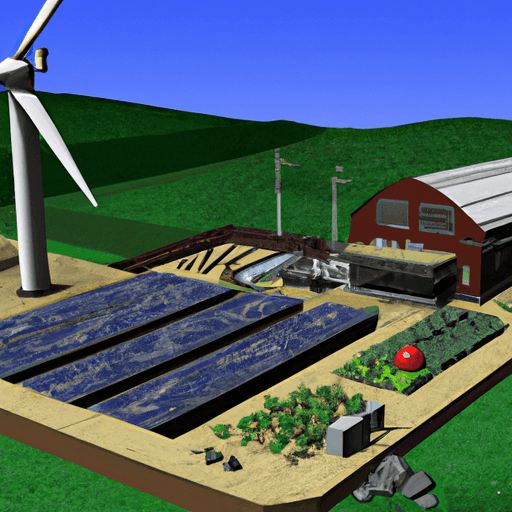Exploring The Benefits of Sustainable Agriculture
Sustainable agriculture is an approach to food production that focuses on the conservation of natural resources, such as soil, water, and energy, while also providing economic and social benefits to local communities. Sustainable agriculture practices can help to increase crop yields, reduce pollution, and provide economic and social benefits to local communities. Governments and organizations around the world are promoting sustainable agriculture and the impact it is having on the environment is becoming more evident.
Reducing Pollution and Increasing Crop Yields
Sustainable agriculture practices, such as crop rotation, integrated pest management, and organic fertilizers, can help to reduce pollution by reducing the amount of synthetic chemicals used in crop production. Additionally, sustainable agriculture practices can help to increase crop yields by utilizing efficient use of resources such as water, fertilizer, and energy. For example, some sustainable agriculture practices, such as mulching, can help to conserve water, reduce fertilizer use, and maintain soil health.
Providing Economic and Social Benefits
Sustainable agriculture practices can also help to provide economic and social benefits to local communities. For example, sustainable agriculture can help to increase the number of jobs available in rural areas, as well as provide a stable source of income for farmers. Additionally, sustainable agriculture can help to create a more equitable and resilient food system, which can lead to improved nutrition and health outcomes for communities.
Promoting Sustainable Agriculture Worldwide
Governments and organizations around the world are promoting sustainable agriculture to help reduce pollution, increase crop yields, and provide economic and social benefits to local communities. For example, the United Nations has launched the Sustainable Agriculture and Food Systems Initiative to help promote sustainable agriculture practices in developing countries. Additionally, some countries, such as the United States, are investing in research and development to help create more sustainable agricultural practices.
The Impact of Sustainable Agriculture
Sustainable agriculture practices are having a positive impact on the environment. For example, sustainable agriculture practices can help to reduce water pollution, improve soil health, and reduce carbon emissions. Additionally, sustainable agriculture can help to protect biodiversity, as well as improve food security and nutrition.
Conclusion
Sustainable agriculture is an important part of creating a more sustainable and equitable food system. Sustainable agriculture practices can help to reduce pollution, increase crop yields, and provide economic and social benefits to local communities. Governments and organizations around the world are investing in sustainable agriculture initiatives to help promote these practices and the impact they are having on the environment is becoming more evident.



















Comments
Leave a Comment